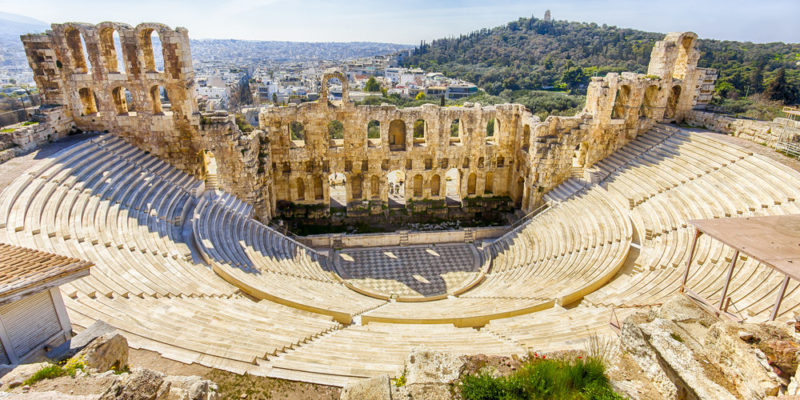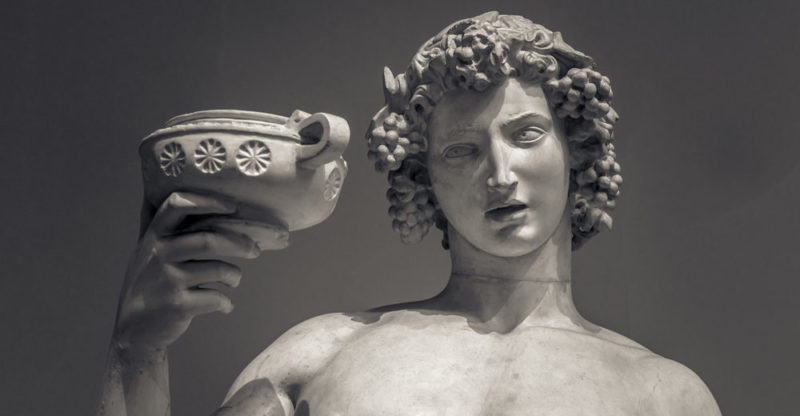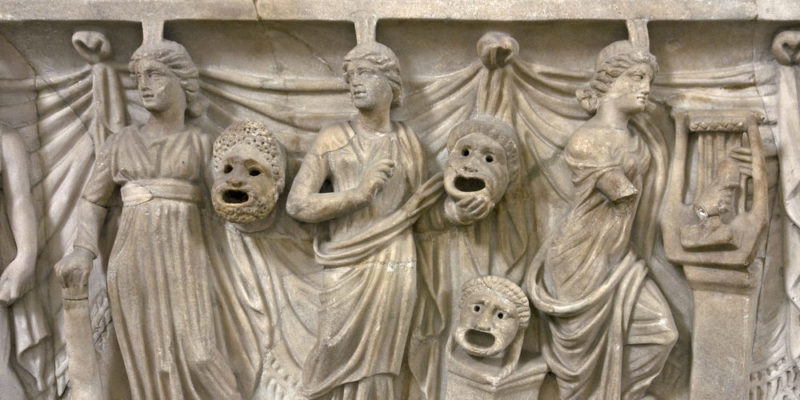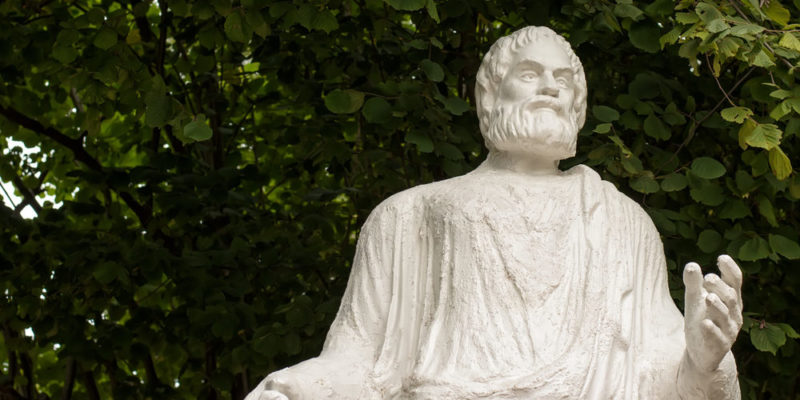We explain what ancient Greek theater is, what its structure and genres are like. Also, its general characteristics, authors and more.
What is the Ancient Greek Theater?

The Greek theater began in the 6th century BC. A. In Athens and was a pioneer in theatrical representations of massive summons. The first stagings were based on the religious ceremonies represented through tragedy and, over time, other genres such as comedy and satire were incorporated.
The theaters were built outdoors, yet they conveyed impeccable acoustics. They used to be established on the side of a hill, with a stage and a large back wall (the space for the actors to prepare), surrounded by steps in the shape of a semicircle, where the audience sat.
The first works were adaptations of religious rituals performed by a single actor. Later more actors, the music of a choir and the scenery were incorporated. Other genres emerged such as drama and comedy, which were very popular, along with tragedy. The Greek theater was of great influence for the Hellenistic and Roman theater, to later spread throughout the Mediterranean.
Origin of Greek theater

The great Dionysians of Athens are considered the forerunners of the Greek theater. They consisted of annual festivals that lasted several days, in honor of Dionysus, god of wine and exuberance.
At these massive celebrations, people sang, danced, and drank wine. The great attraction was the dramatic representations made by some, such as the tragedies of Eurípedes, one of the most representative Greek poets.
Characteristics of the Greek theater

The Greek theater was characterized by its works linked to the religious ceremonies of worship to the god Dionysus. The rituals consisted of the sacrifice of goats, songs called trag-dia and dances with masks, among others.
The plots of the tragedy were always inspired by episodes from Greek mythology, which used to be part of Greek religion. Only men could act and, the first works, consisted of a single actor who was shown disguised with a suit and a mask, to represent the gods.
Large masks with exaggerated features were an important icon of Greek theater. They were used because they were part of religious rituals, adapted to recreate theatrical works and also because they allowed the same actor to represent different characters.
The choir was one of the most important characteristics of the Greek theater. It was made up of a single group of men whose performance interacted throughout the development of the work, generating a particular climate in each instance. In addition, it fulfilled the role of entertaining and amusing the public by accompanying the dance of the actors.
The public was massive and was made up of people from various social strata. For this reason, there were preferential locations destined only for magistrates, priests and illustrious citizens who, in addition, had a better view of the stage.
Greek theater representatives

Among the playwrights or authors representing the Greek theater, the following stand out:
-
- Aeschylus (525 - 456 BC): He was considered the creator of the Greek tragedy and recognized for his innovation after incorporating a second actor (when the works were still performed by only one character). His scripts were based on themes from mythology, with characters of gods, demigods or superhuman beings who expressed themselves in bombastic and metaphorical language.
- Sophocles (496-406 BC): It was very popular for incorporating various innovations, such as the chorus, set design and acting technique. Sophocles' works reflected the suffering of men exposed to the extreme situations that fate brings them and for the divine justice of the gods.
- Euripides (484 - 406 BC): He was celebrated for his intelligent, realistic dialogue and for posing uncomfortable, thought-provoking questions to the audience. He devoted himself entirely to expressing problems and passions. In his scripts the flesh and blood heroes stood out.
- Aristophanes (444 - 385 BC): It was the main exponent of the comic genre, also called ancient comedy or Aristophanic comedy. His scripts reflected a high cultural and artistic level, through sarcastic humor and harsh political, social and religious criticism, even criticism of Socrates and Euripides.
Anas is an editor of a prestigious publishing company in the United States. She studied Mathematics in Arizona. Anas is also a teacher and one of her long-term goals is to build an institution that offers free education to everyone who are financially not stable. .
Leave a reply
Your email address will not be published. Required fields are marked *Recent post

Sport: What Is It, Types, Risks, Features, Characteristics and Examples

Dogs: Emergence, Features, Characteristics, Feeding and Breeds

Story: Definition, Elements, Structure, Features and Characteristics

